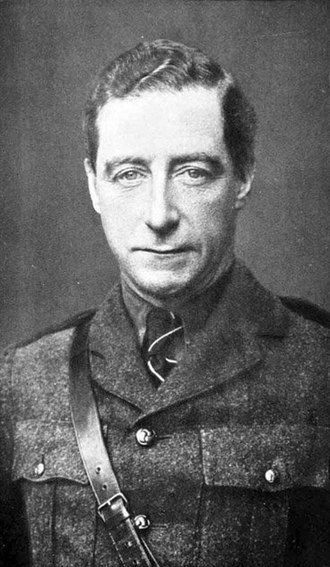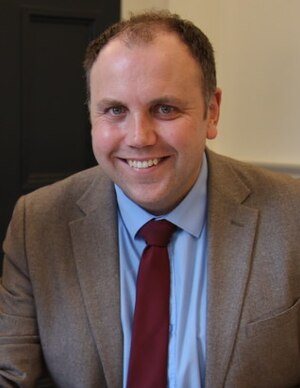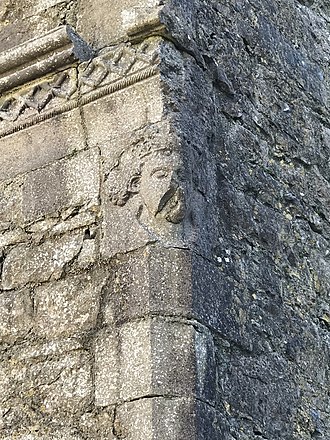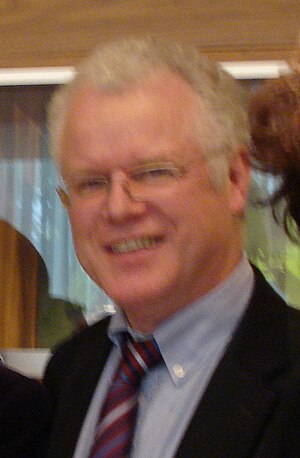Discover Your Roots
SIGN UPDiscover Your Roots
SIGN UPCathal is a male name of Irish origin, meaning "Strong In Battle". Derived from the Celtic elements "cath" for "battle" and "val" for "rule", it has no feminine form. This Gaelic name has various anglicised versions, including Cathel, Cahal, Cahill, and Kathel. Despite also being anglicised as Charles, it is unrelated to the Germanic-derived name. Historically, Cathal was popular in Ireland's western provinces, Munster and Connacht, and remains a common given name in Ireland. Notable places associated with the name include Cathal Brugha Street and Cathal Brugha Barracks in Dublin, Ireland. The name is deeply rooted in Irish culture and reflects strength and resilience.

Cathal Brugha (1874-1922) was an influential Irish republican politician and military leader. He played pivotal roles in various key events during the struggle for Irish independence, including the Easter Rising, the Irish War of Independence, and the Irish Civil War. Brugha served as Minister for Defence from 1919 to 1922 and was the first president of Dáil Éireann. Born in Dublin to a mixed Roman Catholic and Protestant family, he joined the Gaelic League in 1899 and changed his name from Charles Burgess to Cathal Brugha. He married Kathleen Kingston in 1912, with whom he had six children. Brugha was actively involved in the Irish Republican Brotherhood and became a lieutenant in the Irish Volunteers in 1913. He displayed remarkable courage during the Easter Rising, despite being severely wounded. Brugha was elected as Ceann Comhairle of Dáil Éireann and later served as Chief of Staff of the Irish Republican Army. He was known for his militant republicanism and proposed a Republican constitution at the 1917 Sinn Féin convention. Despite his involvement in the political and military landscapes, Brugha continued to run his business as a candle maker and was elected as a Sinn Féin Member of Parliament for the County Waterford constituency. His steadfast commitment to the cause of Irish independence and his unwavering principles mark his legacy as a significant figure in Irish history.

Cathal Goulding (Irish: Cathal Ó Goillín; 2 January 1923 – 26 December 1998) was a prominent figure in Irish Republican history, known for his roles in the Irish Republican Army (IRA) and the Official IRA. Born into a republican family in Dublin, Goulding's involvement in the IRA began during his teenage years. Throughout his life, he faced imprisonment, internment, and arrests for his active participation in IRA activities. Notably, he played a pivotal role in re-establishing the IRA after World War II and was involved in significant events such as the arms raid on the Officers' Training Corps armoury at Felsted School in Essex in 1953. His leadership within the IRA culminated in his appointment as Chief of Staff in 1962. Goulding was instrumental in steering the IRA towards leftist ideologies, advocating against sectarian divisions and promoting a Marxist analysis of Irish politics. Despite his significant influence, his perspectives were later rejected by those who formed the Provisional IRA after the 1969 IRA split. After his tenure as Chief of Staff, Goulding remained active in political movements, notably in the development of Official Sinn Féin into the Workers' Party. His later years were spent in County Carlow, and he passed away in Dublin in 1998. Goulding's legacy continues to be a subject of historical and political interest, reflecting his enduring impact on Irish Republicanism.

Cathal Crowe, born on October 1, 1982, is an Irish Fianna Fáil politician serving as a Teachta Dála (TD) for the Clare constituency since the 2020 general election. Crowe's political career began in 2004 when he was elected to Clare County Council, becoming the youngest councillor in Ireland at the time. Throughout his tenure, he has continually shown a strong commitment to his community. He gained attention as the Mayor of County Clare for boycotting the government's commemoration of the Royal Irish Constabulary, displaying his principled stance. Crowe has also faced scrutiny, including allegations related to property ownership and declaration of income sources, which he has vehemently denied. In addition to his political endeavors, he has a family background, being the son of a retired firefighter and nurse, and is married with three children. Before entering politics, Crowe worked as a primary school teacher. Despite the controversies, Crowe remains an influential figure in Irish politics, advocating for various issues, such as urging the Irish government to contact the Vatican regarding the mythical crown of Brian Boru. For more information on his career and political activities, visit Cathal Crowe's page on the Fianna Fáil website.

Cathal Crobhdearg Ua Conchobair, also known as Cathal O'Connor, was a significant figure in Irish history, serving as the king of Connacht from 1153 to 1224. As the youngest son of the High King of Ireland Tairrdelbach Ua Conchobair, he faced numerous challenges during his reign, including internal feuds and the influence of powerful Anglo-Norman lords. Despite these difficulties, he proved to be a competent leader, skillfully navigating conflicts and winning minor skirmishes. He sought to adapt to the changing political landscape of Ireland, divided between Norman and Gaelic rulers.Cathal's reign was marked by various conflicts and alliances, including clashes with rival claimants to the throne of Connacht and engagements with Norman invaders. He demonstrated resilience in the face of adversities, seeking alliances and making strategic moves to maintain his authority. His long reign, spanning several decades, symbolized a degree of success in managing the turbulent political climate of the time.Cathal's legacy is commemorated in historical accounts and literature, such as the poem "A Vision of Connaught in the Thirteenth Century" by the Irish nationalist James Clarence Mangan. He also played a significant role in shaping the political landscape of Connacht, leaving a lasting impact on the region's history.Throughout his reign, Cathal displayed strategic prowess and resilience, leaving a lasting impact on the history of Connacht and Ireland as

Cathal Mac Coille, born in 1952, is a retired Irish broadcaster, journalist, and researcher, best known for his role as a co-presenter of Morning Ireland on RTÉ Radio 1. He has contributed opinion pieces to Tuairisc.ie since 2014 and has been involved in numerous political broadcasts, interviewing prominent politicians. Mac Coille has presented various radio and television shows, including This Week and One to One. He began his career as the editor of Comhar and later obtained a Bachelor of Arts in History from University College Dublin. Joining RTÉ in 1974, he worked as a radio researcher and was a political correspondent with TG4. Mac Coille's notable achievements include winning a Jacob's Award in 1990 for his work on Morning Ireland and conducting a controversial live interview with Taoiseach Brian Cowen in 2010. Raised in Clondalkin, he attended school in Dublin and currently resides in Phibsborough with his family. For more information on Cathal Mac Coille, you can visit the Morning Ireland Profile and The Sunday Times Radio review.
All images displayed on this page are sourced from Wikipedia or Wikimedia Commons.We use these images under their respective Creative Commons or public domain licenses. Wherever applicable, author attributions and license information are provided. If you believe an image is used incorrectly or outside its license terms, please contact us so that we can review and correct the issue.